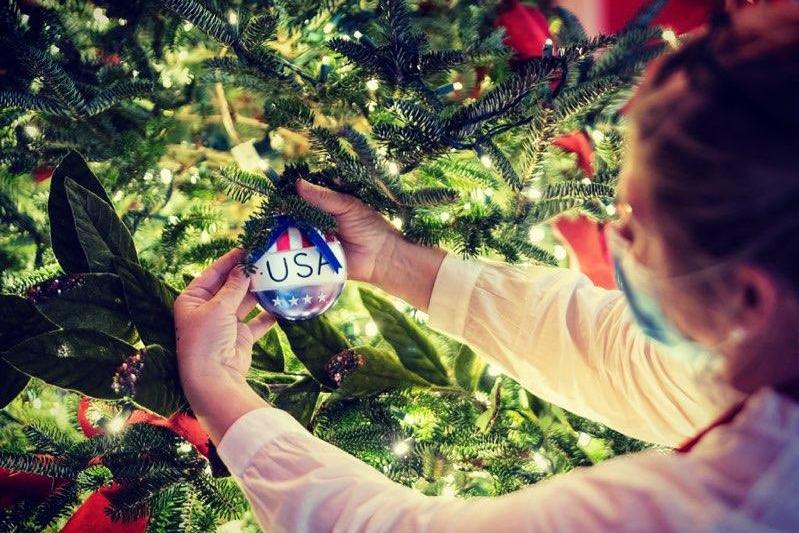
Essential workers are certainly being celebrated this holiday season. For her family’s final Christmas in the White House, first lady Melania Trump has included a tribute of decorations highlighting frontline workers such as U.S. Postal Service employees and medical professionals. Macy’s unveiled a window display lauding New York City’s essential workers at its flagship Manhattan store. Last month, a brand of boozy seltzer even asked consumers to nominate outstanding essential workers, eight of whom will score free flights on private jets, along with other swag, so they can go home for the holidays.
Yet across the U.S., while many companies reaped record profits during this nine-month pandemic, their frontline employees are still struggling — and many saw their hazard pay and any COVID-related bonuses disappear long before this holiday season.
For example, the consumer rights advocacy group Public Citizen recently crunched the numbers from 15 leading retail corporations. While these same companies reaped close to $15 billion in increased profits this fiscal year compared to 2019, nine of them have ceased offering any boost in their employees’ hourly pay.
In the big picture, some retailers have paid essential workers better than others during this pandemic. The Brookings Institution, for example, called out Best Buy, Home Depot and Target for paying a higher average rate than their peer companies. Overall, however, while many employees are still scraping by, corporate executives are doing quite well — and despite these companies’ communications teams’ best efforts to paint a pretty picture of how essential workers are being treated, the reality is far different.
"A number of companies at the beginning of the pandemic instituted hazard pay. They've almost all stopped," said U.S. Sen. Sherrod Brown of Ohio at a recent Brookings forum. "It's pretty simple: Workers don't need a public relations campaign — they need better pay and better protections on the job."
Some of the problems essential workers face are structural. In New York City, for example, the minimum wage drivers can earn while working for ride-hailing companies is more than $17 an hour, but that rate doesn’t apply to delivery workers. App-based delivery companies Door Dash and Uber told the New York Times that they are offering extra benefits for delivery workers during this crisis, but workers who deliver meals and products by bicycle or car described a far different reality to the newspaper.
Essential workers have won some victories. The United Food and Commercial Workers International Union (UFCW) announced last week it had won retroactive hazard pay for almost 50,000 employees of the large grocer chain ShopRite. But at a time when the weather is getting colder, consumers are growing more impatient and bills upon bills are mounting, the reality for countless essential workers is that their day-to-day experiences are becoming worse, not better. Retailers can do far better than responding with a written pat on the back while only offering a virtual stocking full of coal.
Image credit: The White House/Twitter

Leon Kaye has written for 3p since 2010 and become executive editor in 2018. His previous work includes writing for the Guardian as well as other online and print publications. In addition, he's worked in sales executive roles within technology and financial research companies, as well as for a public relations firm, for which he consulted with one of the globe’s leading sustainability initiatives. Currently living in Central California, he’s traveled to 70-plus countries and has lived and worked in South Korea, the United Arab Emirates and Uruguay.
Leon’s an alum of Fresno State, the University of Maryland, Baltimore County and the University of Southern California's Marshall Business School. He enjoys traveling abroad as well as exploring California’s Central Coast and the Sierra Nevadas.














